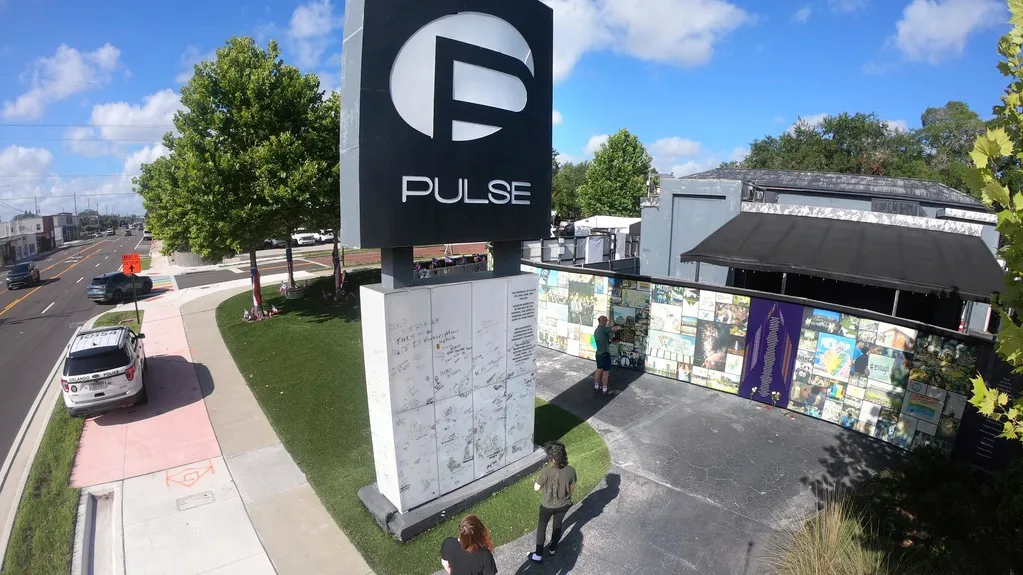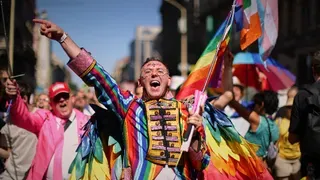October 28, 2011
Do HIV/AIDS Service Organizations Effectively Reach Male Sex Workers?
Joe Siegel READ TIME: 3 MIN.
How do HIV/AIDS service organizations reach out to male sex workers?
EDGE recently reached out to groups in Los Angeles, San Francisco, Boston, New York and other cities to attempt to answer this question.
Thomas Bertrand, executive director of AIDS Project Rhode Island, stressed his organization remains committed to ensuring that "all at-risk individuals and groups in Rhode Island" have access to testing and prevention methods and support services for people with HIV/AIDS. The group's initiative Take Charge! Get Tested! offers free testing to anyone over the age of 13 and counseling and referral services.
Rebecca Rolfe, executive director of the San Francisco LGBT Community Center, pointed out that her organization offers has an extensive information and referral program to clients.
"Through this program we can either provide drop in services, providing an array of resources that clients can follow up with on their own, or more in-depth services which include a deeper assessment of needs and some structured work with one of our team members and follow up to find the best possible resources," she said. "In our information and referral program we are happy to provide services to both men and women who are or have been engaged in sex work."
A Los Angeles Gay and Lesbian Center spokesperson stressed their organization offers similar resources. The SHP (Sexual Health Program) program has testing sessions available on a walk-in, first come, first served basis Monday through Friday from 11 a.m. to 2:30 p.m. and from 5- 7:30 p.m. The center's health clinic tests for HIV, Chlamydia, gonorrhea and syphilis. Results come back in seven to 10 business days, while rapid HIV test results are available within 45 minutes.
"We provide HIV/STD testing and/or treatment for all... regardless of the gender, sexual orientation and profession," said the spokesperson.
Boston's AIDS Action Committee highlighted its work with other Massachusetts HIV/AIDS service organizations to help reduce the number of new HIV diagnoses in the commonwealth by 59 percent over the last decade. This decline amounts to more than 4,000 people who might have otherwise tested positive and $1.6 billion less that the state would have had to spend in health care costs.
"We've accomplished this by targeting hard-to-reach populations vulnerable to HIV infection such as young gay and bisexual men in unstable living situations, as well as those struggling with addiction," said AIDS Action. "If you're trading sex for shelter, it can be hard to insist on using condoms. If you're looking for a place to sleep, it can be hard to keep track of your meds. If depression or addiction take charge of your life, it can be hard to focus on your health.
AIDS Action's Youth on Fire is a drop-in center that offers homeless youth information and other resources that allow them to make safer decisions-approximately 40 percent of those who utilize the center's services are LGBT. Staff at the MALE Center in Boston's South End specifically reaches out to gay and bisexual men who are particularly vulnerable to HIV.
"We work with them to help them learn their HIV status and come up with ways to keep themselves and their sexual partners safer," said AIDS Action.
Rich Holcomb, a former male prostitute who launched Project Weber in 2010 to help male sex workers get off the streets of Providence, R.I., remains unimpressed by these blanket statements. He feels that these programs don't really address the unique problems that male sex workers must endure.
"These outreach efforts for testing are focused primarily on the mainstream straight, gay and minority communities, and leave out very high at-risk sub-populations that are not easily reached through these traditional HIV prevention efforts, such as male sex workers," noted Holcomb. "Sex workers in general, are never mentioned or recognized as individuals who are welcomed at any of the testing sites in [Rhode Island.] I often see the words "services for the gay and bisexual community" which leaves out so many since many men who have sex with men do not identify as gay or bisexual, including not only the sex workers, but their clients."
In New York City, the Sex Workers Project provides legal services and legal training for sex workers. The project uses documentation-based advocacy, policy analysis, training and education and collaborates with community-based HIV/AIDS providers to advocate on behalf of those who remain in the sex industry out of choice, circumstance or coercion.
The Sex Workers Project is a project of the Urban Justice Center, which advocates on behalf of low-income and marginalized New Yorkers. Log onto www.urbanjustice.org for more information.
Joe Siegel has written for a number of other GLBT publications, including In newsweekly and Options.







